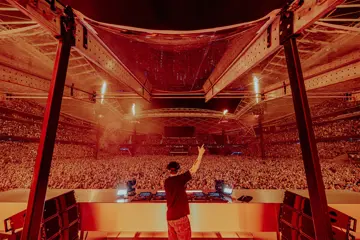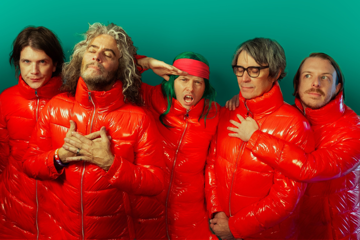Even among the filmmakers whose surnames have become adjectives - Hitchcock, Spielberg, Jean-Luc Godard, increasingly Terrence Malick - Stanley Kubrick stands apart. The precision of his methods, the technical innovation and brilliance he displayed, the mystique surrounding his personal life, the obsessions many viewers have with what lies within his films - they all come together to create something that feels more like a legend than a life story.
Kubrick is beloved by fellow filmmakers - "Inevitably, you're going to end up doing something that he's probably already done before," There Will Be Blood director Paul Thomas Anderson glowingly said of him - and by film buffs, who can watch his work over and over again, finding something previously undiscovered or unheralded. (The fact that he rarely gave interviews or discussed his work publicly only adds to the sense of discovery felt by a viewer delving deep in Kubrick's filmography.)
Speaking for myself, my interest in Kubrick began relatively early, mainly due to the sense of awe that surrounded his films from 1971's A Clockwork Orange on. While he wasn't prone to taking hiatuses as long as the aforementioned Malick, who took a sabbatical of more than 20 years between Days Of Heaven and The Thin Red Line, Kubrick worked deliberately and at his own pace. He didn't churn them out, and as such a Kubrick film was an event.
In addition to this, he had what appeared to be carte blanche with a major Hollywood studio, Warner Bros, to develop and make whatever he pleased. I've searched for verification of the finer details of this deal but the gist of it seems to be he could make what he wanted when he wanted.
Don't miss a beat with our FREE daily newsletter
Sometimes this resulted in a project seemingly in step with the zeitgeist, such as an adaptation of Stephen King's The Shining (semi-dismissed at the time, and notoriously despised by its author, but now widely regarded as a classic of the horror genre); sometimes it resulted in something highly idiosyncratic, like the period piece Barry Lyndon, which saw Kubrick and his collaborators employing innovative visual techniques that gave the film the appearance of 18th century artwork. (Time has been kind to Barry Lyndon, with many critics now regarding it as one of the filmmaker's finest.)
What do we know about Kubrick's own tastes, and how they affected or influenced his own work? Top 10 lists are all the rage now, with both critics and filmmakers regularly offering their favourites for public scrutiny, but it's understood that Kubrick only ever submitted one such list - he did so in 1963 to a new film magazine titled Cinema, with his list topped by Federico Fellini's I Vitelloni and containing a diverse array of filmmakers, Orson Welles, Charlie Chaplin, Michelangelo Antonioni and WC Fields among them.
But Kubrick's own body of work is fairly diverse as well, and even though there are points of commonality in all his films - both technically, such as the formality of his shot composition, and thematically, such as social constructs and conditioning - he explored them in a variety of genres. He looked at war as a blackly comic game of brinksmanship in Dr Strangelove Or: How I Learned To Stop Worrying And Love The Bomb and as a hellish, dehumanising conflict in Full Metal Jacket. He looked at sex and obsession in his adaptation of Lolita (a noble but flawed attempt to bring Nabokov's 'unfilmable' novel to the screen) and his final film, Eyes Wide Shut (it speaks volumes about Kubrick's reputation that he was able to attract Tom Cruise and Nicole Kidman, two of the biggest stars in the world at the time, to such an against-type project). He looked at violence, physical and psychological, in The Shining and A Clockwork Orange.
Now film buffs in Melbourne and Sydney have been given the magnificent opportunity to view all of Kubrick's filmography in a comprehensive retrospective - the first of its kind in the world. From 6 - 13 Oct at Melbourne's Cinema Nova and 6 - 19 Oct at Sydney's Hayden Orpheum, The Complete Features of Stanley Kubrick Film Festival will screen all 13 of the filmmaker's features, including a rare big-screen presentation of his 1953 debut feature Fear And Desire. In addition to the films directed by Kubrick, the festival will also screen A.I. Artificial Intelligence, long developed by Kubrick but eventually directed by Steven Spielberg (fittingly, A.I. received mixed reviews upon its release in 2001 but has come to be regarded as a bold, fascinating piece of work in the years since).
"Almost 20 years after Kubrick's death, his films still invite fresh consideration and assessment," said Kristian Connelly, General Manager of Cinema Nova. "Everyone has a favourite Stanley Kubrick film but there are undoubtedly films that even true fans have yet to experience on the big screen. As much as we expect all-time classics like A Clockwork Orange to prove popular, we also anticipate that less-revered features will find new admirers, particularly the lavish costume drama Barry Lyndon."















